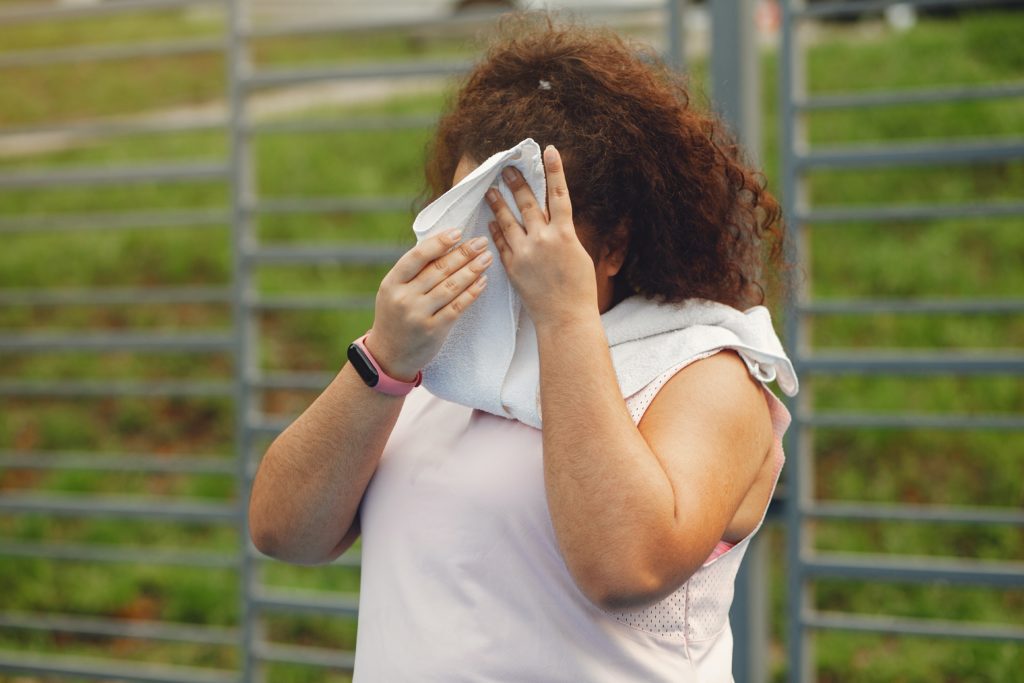Your body odor is often caused by the mixture of bacteria and sweat that is normally found on your skin. Body odor is also affected by hormonal changes, certain foods, underlying medical conditions, or infection.
Let’s dive into different ways to approach getting sweat and odor under control.
Lose weight
Your body has to work harder if you're carrying around excess pounds. In addition to all the other benefits, maintaining a healthy weight will help you perspire less.
Manage stress
Many people sweat as a response to stress. Try taking a yoga class or practicing daily meditation. Listen to gentle instrumental music or take a daily walk.

Know your trigger foods
Foods like garlic are notorious for their ability to seep into your pores and cause an odor that lingers long after the lasagna is gone. Other offenders can include foods and beverages with hot spices or those that are served at high temperatures.
Stay hydrated
You may be able to eat risky foods if you drink a lot of water to reduce their impact. Similarly, limiting your intake of alcohol and caffeine will help you stay hydrated and fresh.

Pick clothes that breathe
Loosely woven natural fibers like cotton will keep you dryer. When working out, look for athletic gear that whisks moisture away. Dressing in layers always helps too.
Change your bedding
If night sweating interferes with your sleep, look for sheets made from more absorbent materials. One hundred percent cotton sheets may keep you more comfortable than silk or flannel.

Talk with your doctor
An estimated three percent of the population suffers from excessive sweating called hyperhidrosis. Your doctor can suggest treatments like prescription strength antiperspirants or even surgery. In rare cases, heavy sweating can be a warning sign for infections or other conditions. It's also common for women to sweat more during menopause.
Careful washing and simple lifestyle changes may enable you to avoid any unpleasant or embarrassing wetness and odor. If home remedies fail to work, talk with your doctor about additional steps you can take.

